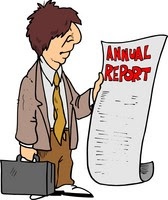Stand Out and Ace Your Job Interview !!!!!
abhinav tiwari
There are many articles about interviewing skills, questions interviewers might ask, and mistakes to avoid when you interview. While those are helpful, when the competition is as stiff as you are experiencing today, you need to stand out. Here are some tips to help you do just that.
1. Do Some Research
Learn about the company. Get a copy of their last annual report or news report. Go to their website and learn the company’s mission and customers. Google them to see why they are making news. See who is on the board of directors and who holds the top positions. This will, of course, vary based on the size of the company. If it is a huge conglomerate, learn as much as you can about the division in which you are interviewing.If possible, when they call to set up the interview, ask who you will be meeting with. Google them. That helps you remember names, and by knowing what they do, you can make your answers more relevant.
For example, if you are interviewing with a nonprofit agency and members of the board of directors will be interviewing you, knowing the companies they represent will give you more insight into their priorities. If you are interviewing with a small firm, look up the HR team if possible. If you are interviewing with the manager you might be working for, Google him or her. It may give you some common interests or insights you might benefit from knowing ahead of time.
Do you know anyone working for the company or who has done business with them? Ask these people about the company and specifically whether they know the people who will be interviewing you. Ask what their owninterview was like.
2. Prepare
Be prepared to tell them about yourself with items they haven’t already read about in your resume while also using examples that match the company’s mission and goals.For example, if you are going to be writing press releases, bring examples of your writing. If you are going into a technical field, have a summary and list of your key papers, patents and research. If you will be doing marketing, bring an example of a great marketing activity on which you worked previously. If you are interviewing with a nonprofit organization, discuss volunteer work you have done, especially if it involved raising monies. If you are fresh out of college and this is your first job, bring examples of leadership, key activities, honors and organizations in which you participated.
You may never even pull this file out during the interview but preparing it gets you ready for questions.
You will be asked question like:
What are your strengths and weaknesses?
What are your goals?
Why do you want this job?
Prepare your answers with the key message you want to impart but don’t memorize your answer word-for-word. You should be natural and involved.
3. Have Your Own Killer Questions Ready
Remember: You are interviewing them just as much as they are interviewing you. By having these questions prepared, you have control over where the interview goes. Relax, listen, and ask your killer questions.some good questions to ask are:
What do you consider an ideal candidate?
Be prepared to compare yourself to this. (If there was an ad for this position, it may have listed some ideal qualities, so you can prepare your answer ahead of time).
What are the main challenges this position needs to solve?
They will also likely ask you how you would go about solving these challenges. You might then ask, What has been tried so far, and how has it worked? Getting into a give-and-take of questions and answers on a topic like this can set you apart from those other 49 candidates.
When I interviewed for a position at IBM, one of the interviewing managers discussed a key technical problem they were working on. I asked a lot of questions, suggested some things to try and before I knew it, we were both working together to solve the problem. At that point, I knew I had him “hooked.”
Ask about some of the basics.
If you are interviewing for a managerial or leadership position, ask what your budget would be and how it is broken down. If you are interviewing for a marketing position, ask who their clients are and what have been some of their most successful marketing campaigns.
A friend seeking a job at a nonprofit was asked if she had done any fundraising. She asked first about the ones that the organization found most successful, so that she could identify similar experiences she’d had. She then hit them with an idea about something she had done previously that they had never considered. At that point, they were “hooked.”
The questioning process is your chance to WOW them. Impress them with your knowledge, interest and energy. And let yourself enjoy the process! Pretend you were actually in the company working on the issues you discuss, and before you know it, they, too, will be “hooked.”
Most job seekers spend too much time on the questions they will be asked and forget about the ones they should be asking. By asking questions, you can direct the conversation into the areas where you excel, and by making them Killer Questions, you will stand well above the other candidates.
4. Leave on a High Note
When you are ready to leave, you need to have a 30 second or less thank you speech — tell them how much you appreciate their time and reiterate why you think you are a strong candidate as well as your interest in helping them be successful.You should also ask when you might expect to hear back from them.
khushi saiyad
good communications skills .
On 10/18/11, abhinav tiwari <abhinav_t...@yahoo.co.in> wrote:
> Stand Out and Ace Your Job Interview
>
> You’ve got a terrific resume. You’ve crafted the perfect cover letter. Now,
> you’ve been called in for that all important interview. You know that over
> 50 people applied for this one position, and they will be interviewing
> qualified candidates for several days. What can you do to distinguish
> yourself from the competition?
> There are many articles about interviewing skills, questions interviewers
> might ask, and mistakes to avoid when you interview. While those are
> helpful, when the competition is as stiff as you are experiencing today, you
> need to stand out. Here are some tips to help you do just that.
>
>
> 1. Do Some ResearchLearn about the company. Get a copy of their last annual
> report or news report. Go to their website and learn the company’s mission
> and customers. Google them to see why they are making news. See who is on
> the board of directors and who holds the top positions. This will, of
> course, vary based on the size of the company. If it is a huge conglomerate,
> learn as much as you can about the division in which you are interviewing.
>
>
> If possible, when they call to set up the interview, ask who you will be
> meeting with. Google them. That helps you remember names, and by knowing
> what they do, you can make your answers more relevant.
>
> For example, if you are interviewing with a nonprofit agency and members of
> the board of directors will be interviewing you, knowing the companies they
> represent will give you more insight into their priorities. If you are
> interviewing with a small firm, look up the HR team if possible. If you are
> interviewing with the manager you might be working for, Google him or her.
> It may give you some common interests or insights you might benefit from
> knowing ahead of time.
>
> Do you know anyone working for the company or who has done business with
> them? Ask these people about the company and specifically whether they know
> the people who will be interviewing you. Ask what their owninterview was
> like.
>
>
> 2. PrepareBe prepared to tell them about yourself with items they haven’t
> already read about in your resume while also using examples that match the
> company’s mission and goals.
>
> For example, if you are going to be writing press releases, bring examples
> of your writing. If you are going into a technical field, have a summary and
> list of your key papers, patents and research. If you will be doing
> marketing, bring an example of a great marketing activity on which you
> worked previously. If you are interviewing with a nonprofit organization,
> discuss volunteer work you have done, especially if it involved raising
> monies. If you are fresh out of college and this is your first job, bring
> examples of leadership, key activities, honors and organizations in which
> you participated.
>
> You may never even pull this file out during the interview but preparing it
> gets you ready for questions.
>
> You will be asked question like:
>
> What are your strengths and weaknesses?
>
> What are your goals?
>
> Why do you want this job?
>
> Prepare your answers with the key message you want to impart but don’t
> memorize your answer word-for-word. You should be natural and involved.
>
>
> 3. Have Your Own Killer Questions ReadyRemember: You are
> 4. Leave on a High NoteWhen you are ready to leave, you need to have a 30
> second or less thank you speech — tell them how much you appreciate their
> time and reiterate why you think you are a strong candidate as well as your
> interest in helping them be successful.
>
>
>


